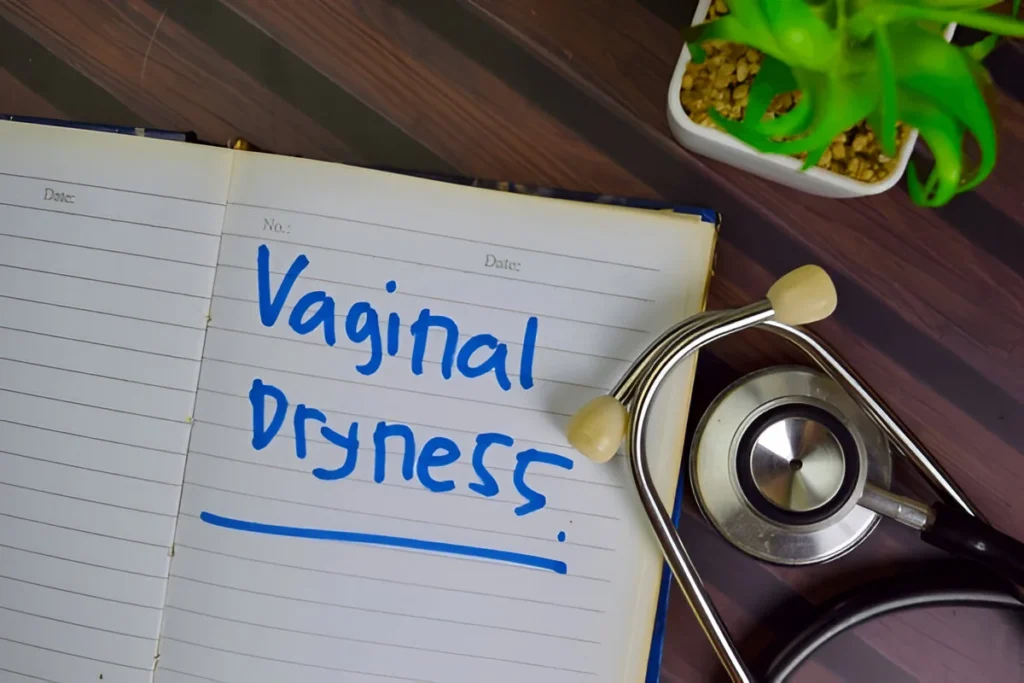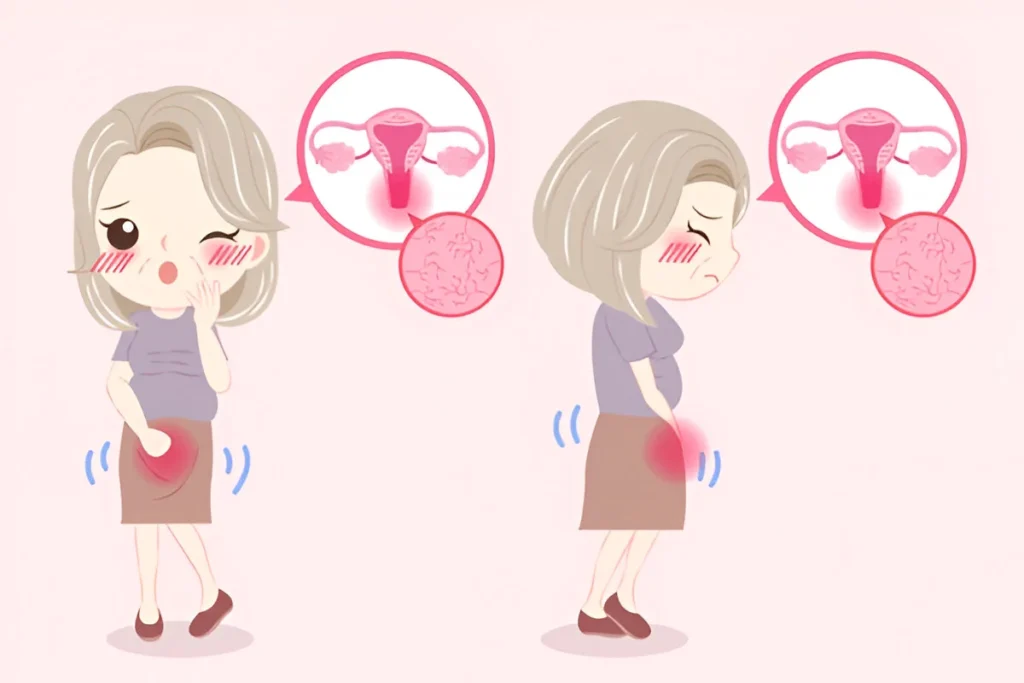-
UNITED HEALTH CENTRE 2,ELLIOT ROAD, KOLKATA - 700016
UNITED HEALTH CENTRE 2,ELLIOT ROAD, KOLKATA - 700016

Vaginal dryness can affect any woman. Learn what causes it and how to manage it naturally, with insights from a reputed gynecologist.
It’s not a topic most women feel comfortable talking about. But vaginal dryness is more common than you might think—and it isn’t just a concern for post-menopausal women. It can affect people of all ages and life stages, from new mothers and those on birth control to individuals navigating stress or chronic illness.
Ignoring it can lead to discomfort, relationship strain, and even infections. So, what causes it? And more importantly—how can it be managed safely and effectively?
Let’s take an open, stigma-free look at this often misunderstood topic, guided by clinical experience and real-world solutions.

Vaginal dryness occurs when the tissues of the vaginal wall lose moisture, lubrication, and elasticity. The reasons can vary, but most often it stems from hormonal changes or lifestyle factors.
It’s essential to remember: vaginal dryness is not just a symptom—it can also be a sign of something deeper happening in the body.
While occasional dryness may be normal, persistent symptoms should not be ignored. In fact, they may interfere with daily life or intimate relationships.
If you’ve noticed these symptoms becoming part of your routine, it’s worth seeking a professional evaluation to rule out hormonal imbalances or infections.

Once diagnosed, the good news is that vaginal dryness can be effectively managed through a combination of lifestyle adjustments, topical treatments, and medical support.
Every woman’s body is unique—so the approach should be too. A personalized plan guided by a certified gynecologist is the safest way forward.
It’s not just physical. Many women silently endure shame, frustration, or loss of confidence because of vaginal dryness. Relationships may suffer, intimacy can become painful, and mental health may take a hit.
Recognizing these emotions is important, and normalizing the conversation is the first step toward healing. Open dialogue with a trusted specialist can make a profound difference, especially when backed by compassionate care and medical expertise.

Q1. Can vaginal dryness occur before menopause?
Yes. It can happen at any age due to birth control, stress, or certain medications, not just menopause.
Q2. Is it safe to use over-the-counter lubricants regularly?
Generally yes, but it’s important to choose paraben-free, water-based products and consult a doctor if symptoms persist.
Q3. Will this go away on its own?
Sometimes mild dryness resolves with lifestyle changes. But if it lasts more than a few weeks, a medical consultation is recommended.
Q4. Is vaginal dryness related to fertility?
It can be. Severe dryness may affect sperm mobility, but not always. If you’re trying to conceive and noticing dryness, it’s worth mentioning during fertility discussions.
Q5. How can I talk to my doctor about this without feeling embarrassed?
Know that gynecologists handle this topic regularly. Writing down your symptoms and concerns beforehand can make the conversation easier.
If you’ve tried home remedies with no relief, or if dryness is affecting your emotional wellbeing or relationship, don’t delay consulting a qualified professional. Especially when symptoms are paired with pain, infection, or bleeding, it’s time for expert care.
Choosing a reputed gynecologist can offer both clinical expertise and the comfort of personalized, respectful care—someone who listens without judgment and treats the person, not just the symptom.
Vaginal dryness is not a flaw, failure, or permanent condition. It’s your body’s way of signaling that something needs attention—whether it’s hormonal, emotional, or medical.
By listening to those signals and taking a holistic approach—one that combines science, self-care, and expert guidance—you can restore comfort, regain confidence, and embrace your health without shame.